How can a failed root canal cause a sinus infection (X-ray pictures)?
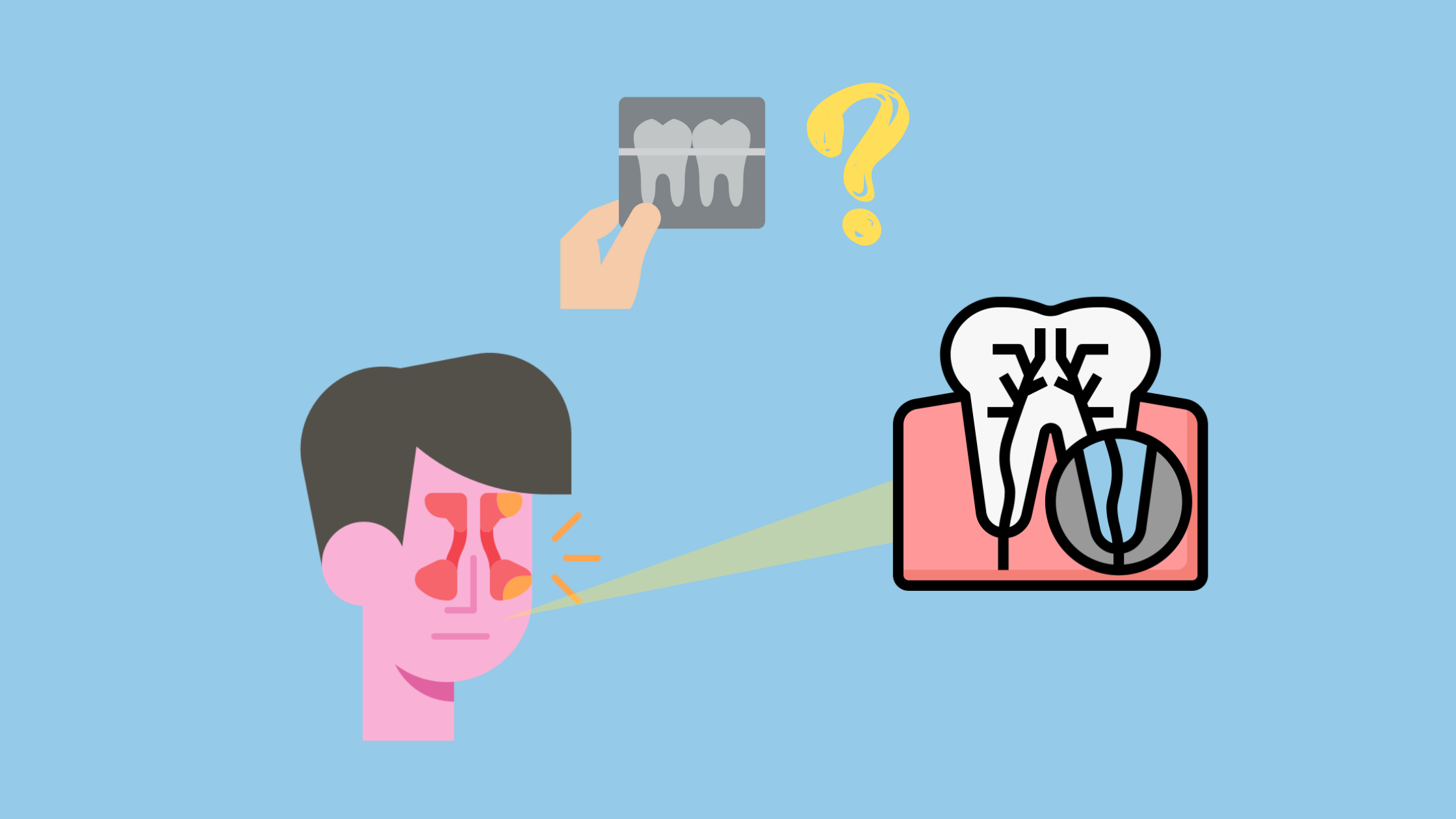 Root canal is one of the most successful dental procedures, designed to save the tooth for years, if not decades. While complications are rare, they can still happen.
Root canal is one of the most successful dental procedures, designed to save the tooth for years, if not decades. While complications are rare, they can still happen.
One of these, which particularly affects the upper back teeth, is sinus injury. Most of the time, it's a temporary and self-limiting issue. But in some cases, it can lead to an infection and cause the treatment to completely fail.
If you’ve had a root canal on one of your upper back teeth, you need to be aware of the potential sinus complications. That’s what we’ll be discussing.
Can a Root Canal Cause a Sinus Infection?
The sinuses are air-filled cavities located on either side of your cheeks, just above your upper back teeth.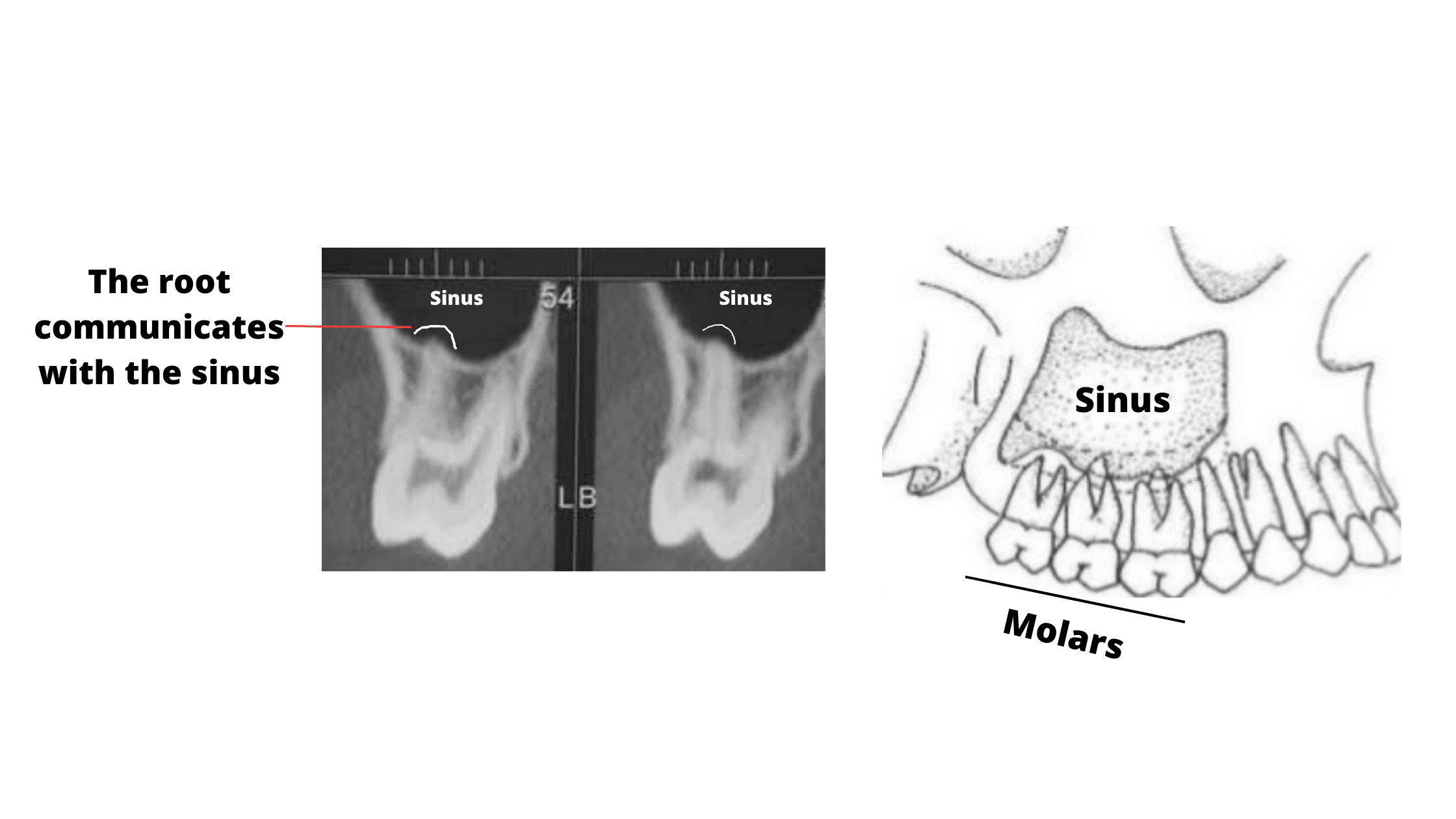
It’s not uncommon for the roots of these teeth to lie very close to, or even extend into the sinus cavity. As a result, any damage or irritation to these roots can potentially affect the sinus and lead to complications.
During a root canal, your dentist uses sharp instruments called files to clean and shape the infected canals. If one of these tools is pushed slightly beyond the root tip, it can perforate or irritate the sinus lining.
Another possible cause of sinus involvement is when bacteria from an already infected tooth are accidentally pushed into the sinus during treatment.
In most cases, the sinus damage is minor, and the lining heals on its own within a few days, without any lasting issues.
However, if the perforation is large or the tooth infection was severe before treatment, healing may not happen and can lead to a condition called sinusitis.
What Is Sinusitis?
Sinusitis is simply a medical term for sinus inflammation.Your sinuses are naturally lined with a soft tissue membrane. When this tissue becomes irritated—such as from a dental instrument during a root canal—it can swell, become inflamed, and start producing too much mucus, which is a thick, gel-like substance.
While mucus helps lubricate and filter the air you breathe, too much of it can block the sinuses and make inflammation worse.
This buildup can lead to:
- Increased pressure and pain in the cheek area
- A runny or stuffy nose
- Postnasal drip
- Reduced sense of smell and taste
A telltale sign of sinusitis caused by a root canal is that the symptoms appear only on the side where the treatment was done. The other side of the face is not affected.
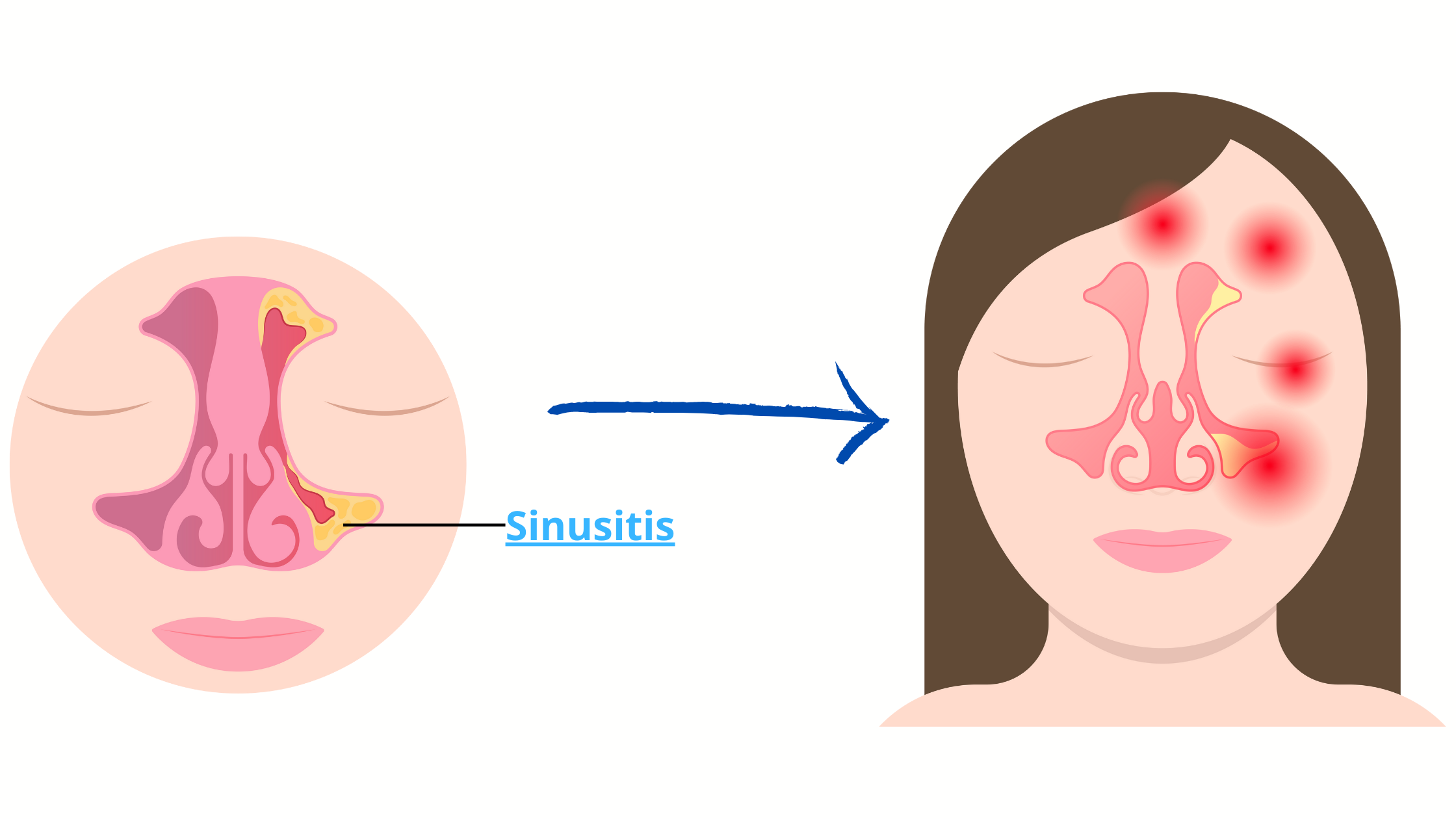
Will the Sinus Heal After a Root Canal Injury?
The sinuses are overall resilient and have their own defense mechanisms, so a minor injury is unlikely to cause major issues.In most cases, it’s just a small hole or perforation that heals on its own without any treatment. This is known as an oral-sinus communication because it creates a temporary connection between the sinus and the mouth.
However, if the perforation is too large, the communication becomes significant. In such cases, bacteria and saliva can pass through the hole and enter the sinus, leading to sinusitis.
If the injury is severe, the sinus may not be able to heal on its own and could require surgical intervention.
How is oral-sinus communication treated?
Typically, your dentist will make a small incision in the gum near the affected area, raise a flap, and cover the hole with stitches to seal it.
If the perforation is larger, a more complex surgical procedure done by a specialist (usually an ENT) might be needed.
Again, root canals usually don't cause serious sinus injuries that require such surgical interventions. Severe sinus complications are more often associated with tooth extractions rather than root canal treatment.
Situations Where a Root Canal Can Cause Sinus Infection (with X-rays)
These are examples of how a poorly performed root canal can lead to sinus complications:1. Incomplete Treatment
If a root canal fails to fully clean and seal the infected tooth, harmful bacteria can remain inside. Over time, the infection can continue to spread, eventually piercing the thin sinus lining and creating a connection between the tooth and the sinus cavity—leading to sinusitis.
📸 The X-ray below shows a tooth with an incomplete root canal filling that doesn’t reach the tip of the root. This allowed the infection to persist and spread into the sinus above.
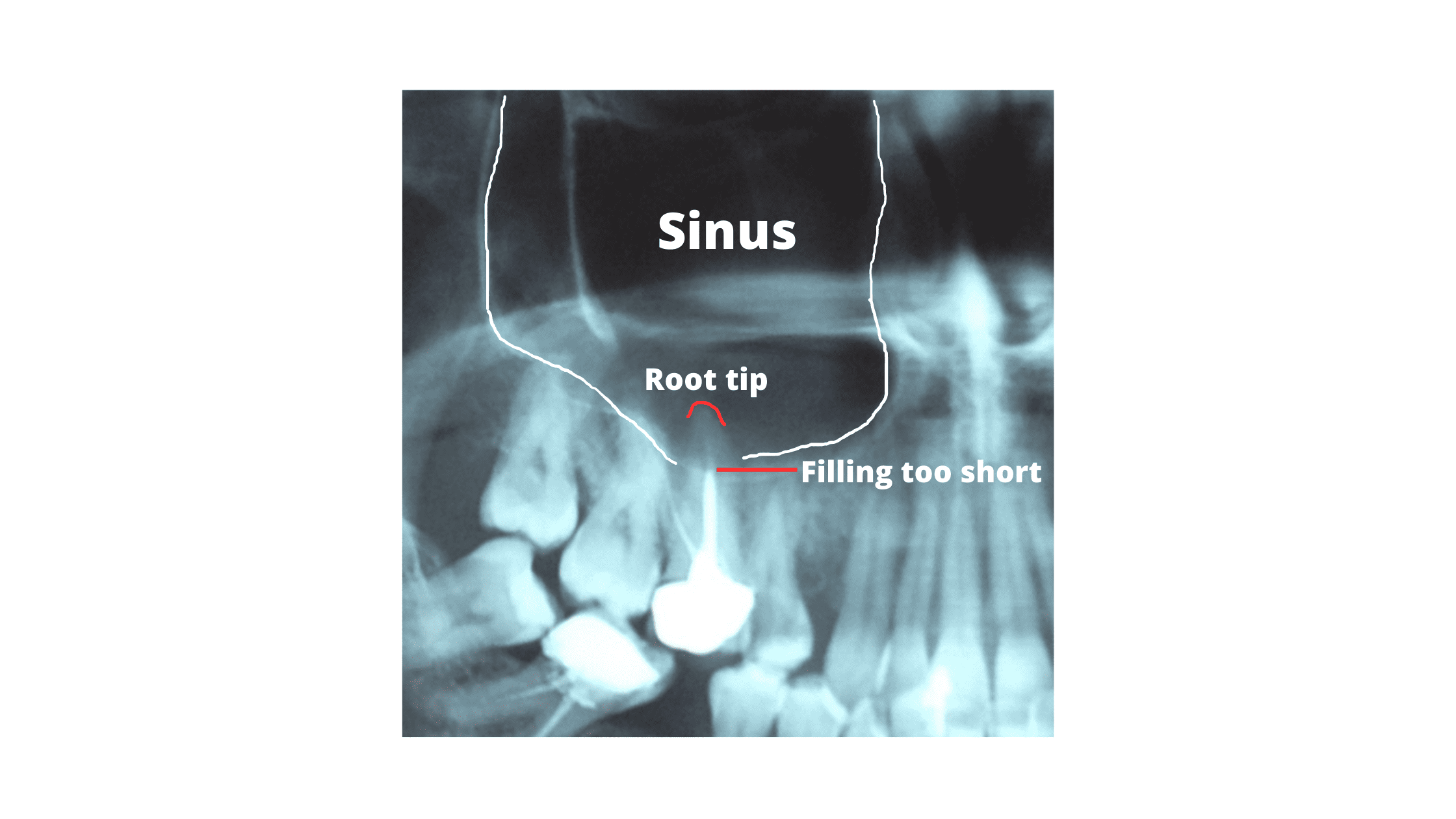
2. Instrument Fracture
The thin instruments used to clean and shape the narrow root canals can occasionally break inside the tooth.
If a piece of the instrument fractures and blocks the canal, the rest of the root can’t be properly cleaned or sealed. As a result, infection may persist and spread upward, eventually affecting the sinus.
📸 This X-ray reveals a fractured endodontic file stuck inside the root canal, which resulted in sinus perforation:
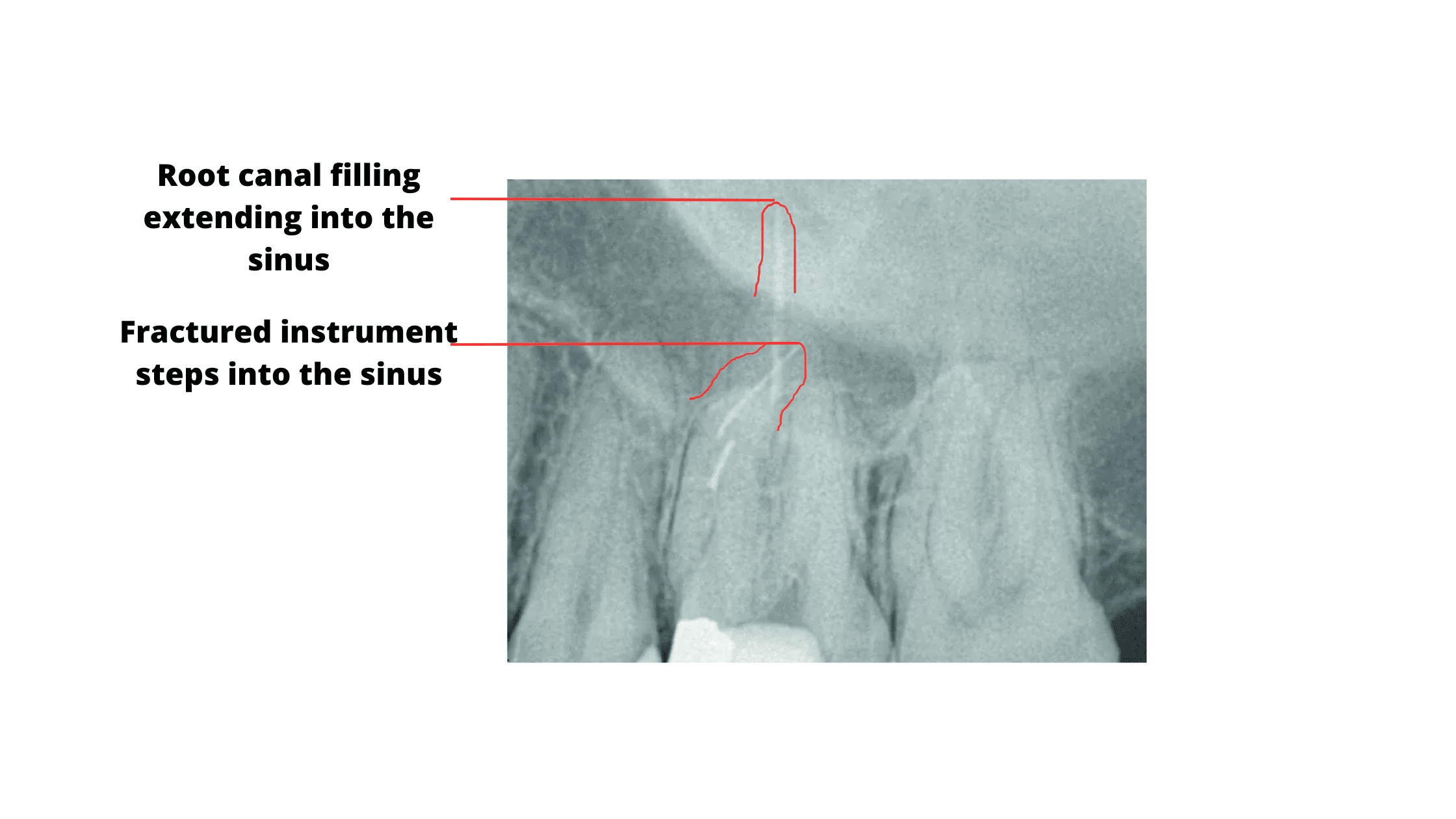
3. Root Canal Filling Overextension
If root canal instruments are pushed too far beyond the root tip, they can accidentally break through the thin sinus lining. This may allow bacteria or debris to enter the sinus and trigger an infection.
Overfilling is another risk. When the sealing material extends past the end of the root and leaks into the sinus, it can lead to long-term complications, like chronic sinusitis.
📸 In this X-ray, you can clearly see the filling material has extended into the sinus cavity.
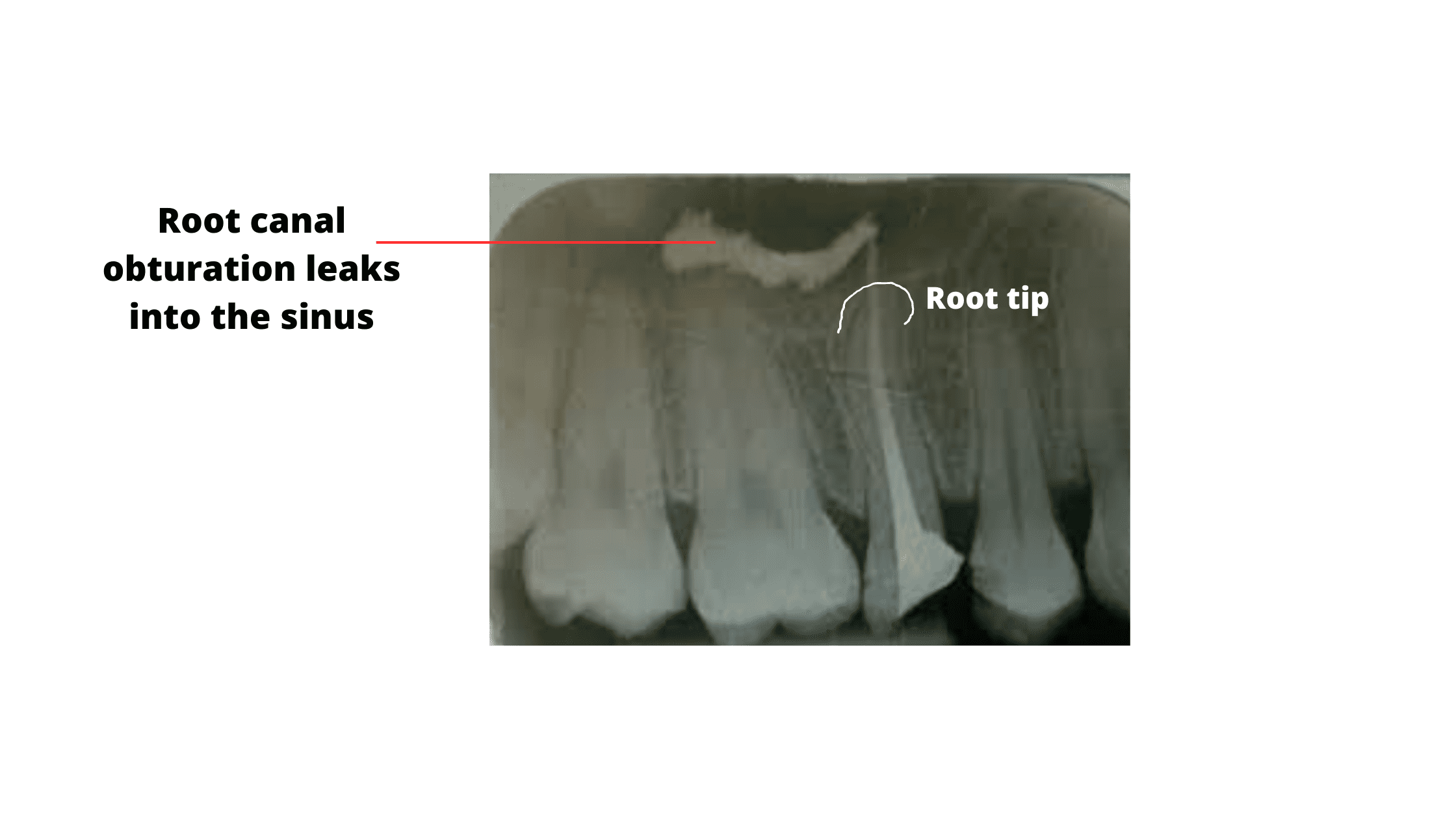
Takeaway
A minor injury to the sinus lining during a root canal is usually not serious and often heals on its own within a few days.However, if the treatment fails to fully eliminate the infection, symptoms may persist or even worsen. In such cases—especially with upper back teeth—one possible complication is a sinus infection.
If your symptoms persist or get worse, don’t wait it out. See your dentist as soon as possible. The sooner the treatment, the better the chances for the sinus to heal without further complications.
- Root canal retreatment: a retrospective investigation using regression and data mining methods for the prediction of technical quality and periapical healing https://www.ncbi.nlm.nih.gov/pmc/articles/PMC8075292/
- Healing of Unilateral Maxillary Sinusitis by Endodontic and Periodontal Treatment of Maxillary Teeth https://www.ncbi.nlm.nih.gov/pmc/articles/PMC9502478/
- Odontogenic maxillary sinusitis: A comprehensive review https://www.ncbi.nlm.nih.gov/pmc/articles/PMC7770314/
- Complication du traitement du canal radiculaire et du sinus maxillaire https://fr.dental-tribune.com/news/complication-du-traitement-du-canal-radiculaire-et-du-sinus-maxillaire/